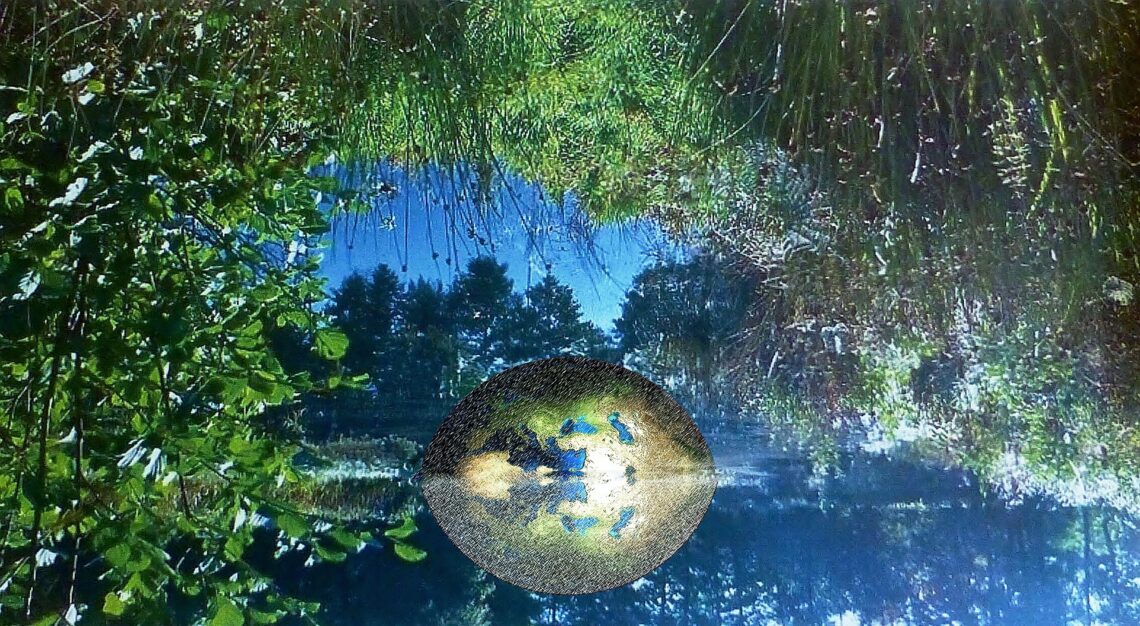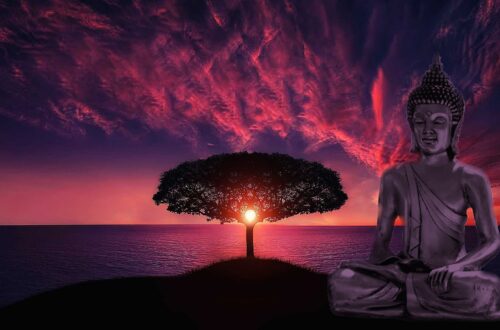
The Need For Meaning
Do you ever wonder why people believe such crazy things? For example, Trump’s big lie that the 2020 election was stolen despite over 60 court cases looking at every aspect of the election and finding no irregularities. In fact, if anything, the 2020 election appears to be one of the cleanest best run elections we have ever had.
The Need to Believe Crazy Things
Or what about the belief that masks and vaccines don’t work despite overwhelming evidence that they do. Or what about the charges of Democrats tied to these pedophilia rings. It even led a young man to travel all the way to Washington with a gun because he was convinced Hillary Clinton was running a pedophilia ring in the basement of a pizza house.
None of this even touches on people still denying climate change or evolution. How can people believe the crazy ideas of QAnon when every piece of evidence gives a lie to those beliefs?
I think one major cause of all of this is the deep need we have for meaning. People are so desperate to believe in something to give their lives meaning and purpose that they will toss aside any evidence that conflicts with their beliefs no matter how factual or obvious it is.
For a lot of people living in our impersonal world where many people are being left behind, there is a need to make sense of it all, and to do something about it.
Filling the Vacuum Inside
People not only need a sense of meaning, they also need a sense of belonging and to feel their lives matter, and that they are doing something that makes a difference. These far right groups like QAnon give them that.
They feel connected to something bigger than themselves, plus they are working with like-minded people, so they no longer feel lonely and isolated.
This deep need that our culture can’t fulfill is the result of our modern worldview that tells us there is no meaning or purpose in the universe. We are accidents of nature, and that is just the way things are. In short, we don’t matter.
Science and reason have taken meaning and purpose out of life and left us with a barren existence. But something inside people demands more. We demand to feel connection and meaning in our lives.
Reason On its Own Fractures the World
The modern worldview embraces reason and empirical studies as the means to truth. What reason does is break things down. When we want to reason about something, we have to first abstract it away from the whole and then look at it.
When we do this, we can get valuable information about this particular subject area, but unfortunately we don’t plug this new information back into the whole to see how it fits with everything else. Instead, it just becomes its own little domain with no connection to other areas of life.
That is why we have all those different subjects we study in schools, colleges and universities. We can become specialists in a particular field but then never have to study how it integrates back to the whole.
We have specialists in economics, law, history, politics, government, literature, sociology, medicine and so on, but they can’t really talk to people outside their disciplines. We have lost that connection to others. And that doesn’t even take into account the sub and sub sub specialties in each of these fields.
The modern worldview is a materialistic worldview. We are all like little self-enclosed atoms floating in a meaningless void completely disconnected from everything around us.
The Need for Connection and Belonging
This is one reason why so many people are willing to believe such crazy things. The need for connection, belonging and meaning override everything, and as this modern world is falling apart, people are grasping on to anything to keep themselves afloat.
What we desperately need now in society is a new worldview. One that embraces the reason and science of the modern world, but also takes into account this deeper need for meaning and purpose. Many people call this new world view an Integral Worldview.
It tells us we are all interconnected and have been from the Big Bang forward. The Integral worldview doesn’t reject the modern world as the QAnon people do, but instead embraces it, but sees its limitations. It can’t answer the deepest needs of people.
The modern worldview played an important role in the evolution of the universe and ourselves. We needed to develop our ego and our reason. We had to become individuals thinking for ourselves, reasoning out issues and problems in the world and in ourselves.
Reason isn’t Enough on It’s Own
But that wasn’t enough. Humans are more than reasoning individuals. We also have emotions, feelings and deep-seated needs that the modern worldview ignored. The modern worldview thought we could reason ourselves through any problem. This was highlighted by the Age of Enlightenment which held the very optimistic view that using reason, humanity was on its way to creating a utopia.
This view came to an abrupt end with World War I. Here reason broke down and the world fell into a war that was the most devastating up to that time. What had gone wrong?
It is no accident that at around that same time as World War I, Sigmund Freud introduced the theory of the unconscious. Behind or below our reasoning ego, these unconscious drives lurked as the real motivator of our actions.
The Cork On the Ocean
These were feelings and emotions that we didn’t want to face so we drove them deep into our unconscious where we thought they would remain hidden. But unbeknownst to ourselves, they were actually secretly motivating our actions and running the show.
Apparently the modern worldview had left out a vital aspect of ourselves. Our conscious and unconscious minds were compared to an iceberg where only an eighth of the iceberg was above water (our conscious mind), but seven-eighths was below water (our unconscious mind).
Our conscious mind was like a cork being tossed around on the vast ocean of our unconscious mind.
Science Can’t Handle the Intangible
So this is the terrain the modern worldview ignored. From their viewpoint, how do we measure or quantify the unconscious mind? Where is it located? If we can’t find it, how do we study it?
We can’t. It eludes scientific inquiry and so science does what it does with phenomena that don’t fall within its purview, it rejects it as non-existent or irrelevant.
But it is highly relevant and an area we need to become aware of in ourselves. We have to explore ourselves to find those hidden assumptions that drive our thoughts and actions. Perhaps we are not reasoning as objectively as we thought.
So, the Integral worldview counsels us to examine this area of ourselves that reveals our true motivations and desires. We have to unearth all of that stuff if we are to become whole again. It is this area that both those that reject the modern world of science and those who embrace it, have in common.
They both lack the desire to travel inward to find the true heart of existence, and thereby find their true meaning, purpose and sense of belonging.
To learn more about the magic of the universe: Click this link: The Magical Universe.
Image by Ulrike Mai from Pixabay




